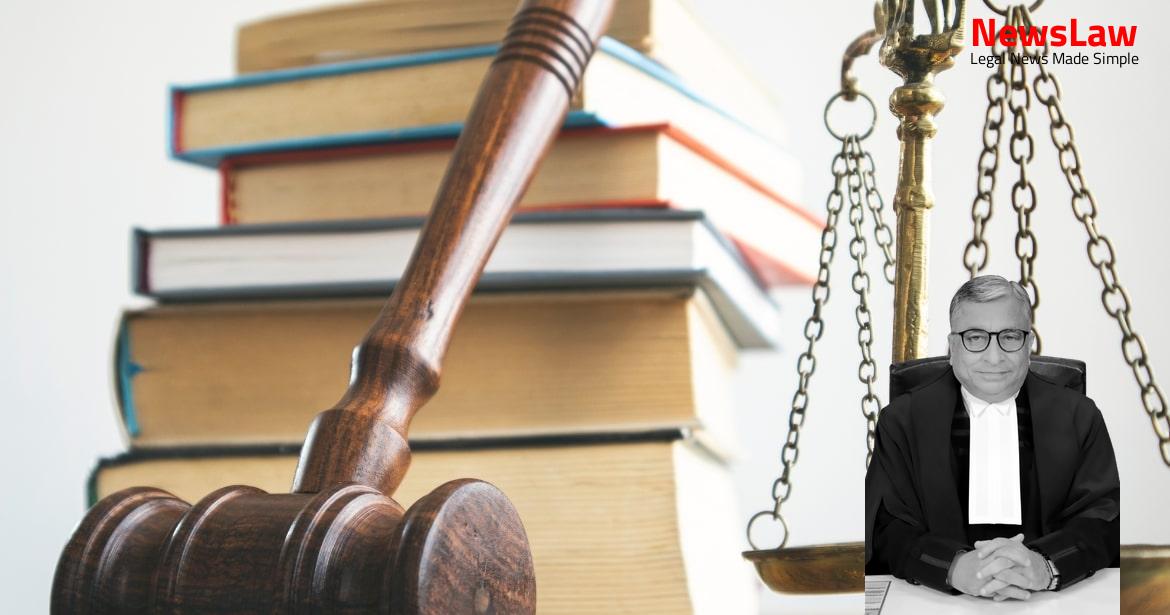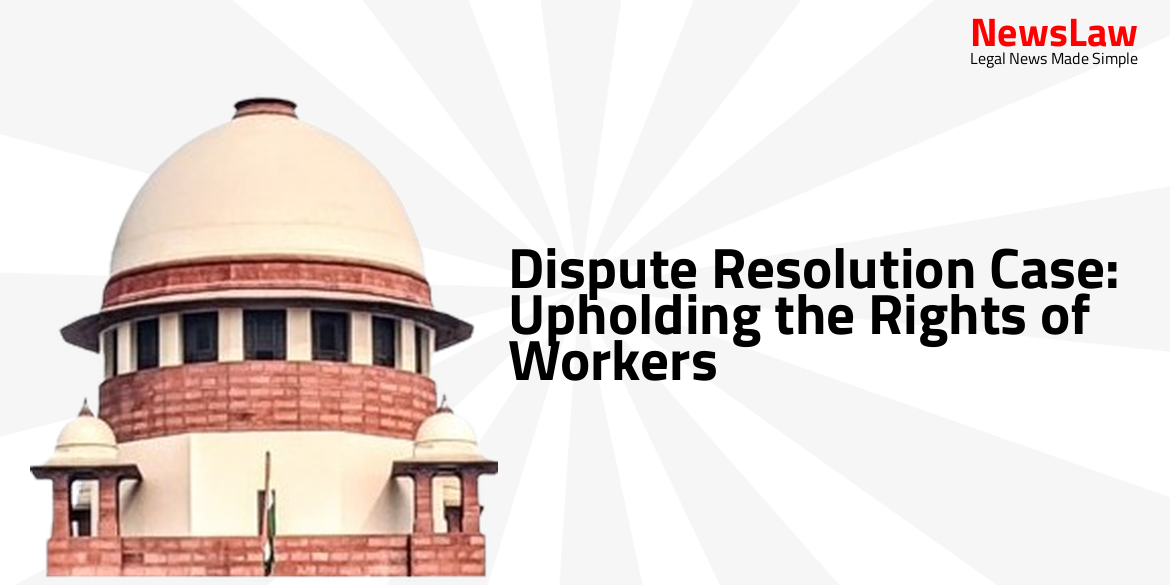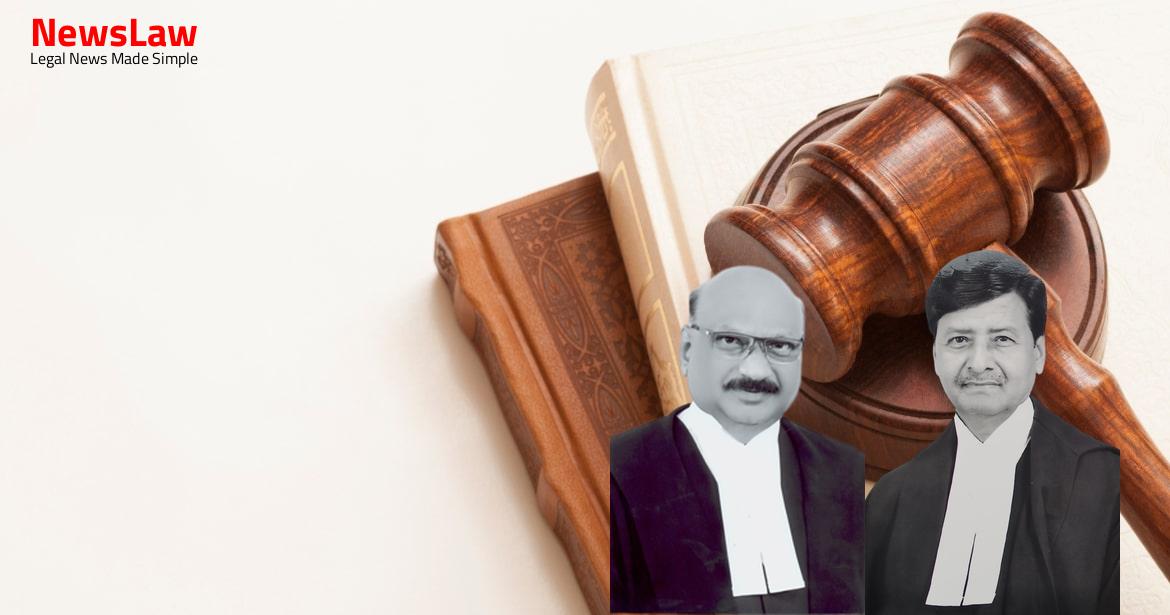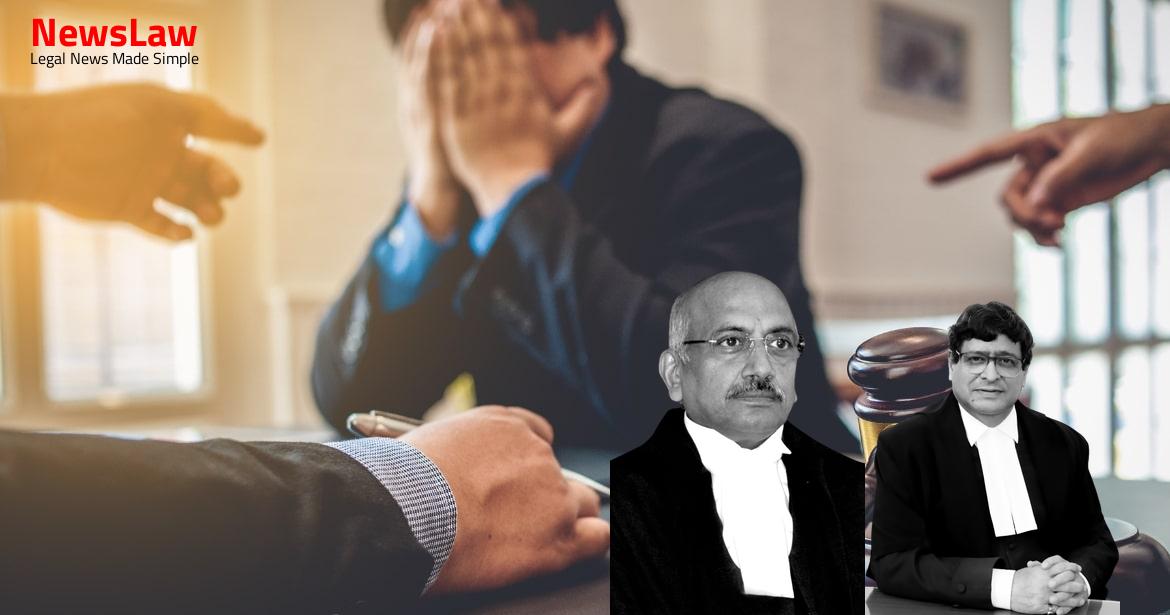In a recent legal case, the court examined the complexities surrounding the admission of secondary evidence in a disputed Will matter. The focus was on the foundational requirements for allowing secondary evidence and the court’s scrutiny of the validity and authenticity of such evidence. This summary delves into the legal analysis conducted by the court, shedding light on key principles governing the use of secondary evidence in legal proceedings.
Facts
- The appellants sought permission to prove a copy of a Will through secondary evidence as the original could not be retrieved
- The Trial Court allowed the application, but the High Court overturned this decision
- The High Court stated that the appellants should have followed proper procedure by serving notice to the revenue official or filing for secondary evidence if the Will was lost
- Since the existence of the Will was not proven, the High Court dismissed the application for approval through secondary evidence
- Appellants had already served notice under Section 66 of the Evidence Act to the revenue officials through the Court, but the Will sought to be produced as secondary evidence was not produced by the revenue officials.
- The present revision petition is allowed and the impugned order is set aside due to the apparent error on the part of the Court below.
- Respondents are still at liberty to move an application under Section 66 of the Act to the revenue official for production of the alleged lost Will and maintain the application for secondary evidence.
- Appellants filed another application under Section 65/66 of the Act for issuance of notice to revenue officials for the original Will dated 24.01.1989.
- Appellants sought permission to prove a copy of the Will dated 24.01.1989 by way of secondary evidence during the pendency of the suit.
- Appellants filed a suit for declaration of ownership of land and challenged mutations based on a forged Will.
- Both revenue officials were issued notice for production of the original Will but failed to produce it.
- Application for secondary evidence was dismissed, leading to the appeal to the High Court citing errors of law.
- Section 65(a) of the Act allows for the production of secondary evidence when the original is not produced after notice under Section 66.
- Consequential relief of permanent injunction to restrain respondents from alienating the suit property was also sought.
Also Read: Challenges to Eyewitness Testimony
Arguments
- Learned counsel for the appellants contended that existence of the original Will can be proved during arguments and is not required to be proved at the first instance.
- It was argued that secondary evidence can be allowed even before proving the existence of the original Will.
Also Read: Balancing Civil Disputes and Criminal Offenses
Analysis
- The existence of the Will, whether registered or unregistered, was a crucial point in dispute.
- Merely admitting a document into evidence does not automatically prove its authenticity.
- The witnesses failed to establish the existence of the original Will, and they did not provide a reason for not producing it.
- For secondary evidence to be admissible, foundational evidence of the original document’s unavailability must be provided.
- The revenue officials did not deny the existence of the Will but failed to produce it with no adequate reason.
- A scribe confirmed the existence of the Will dated 24.01.1989, adding to the prima facie evidence of its existence.
- The appellants laid down the factual foundation to give secondary evidence but were denied the opportunity by the High Court.
- The High Court overlooked crucial evidence and denied the appellants a chance to produce secondary evidence, leading to an error in judgment.
- The Trial Court’s decision to decline permission for secondary evidence was justified based on the facts and settled law.
- The revenue officials were served notice to produce the original Will but failed, citing inability to trace it after 25 years.
- Secondary evidence of the existence, condition, or contents of a document can be given in specific cases as outlined in Section 65 of the Act.
- These cases include when the original document is in the possession of a party against whom it is sought to be proved, or a person who cannot be reached or is legally bound to produce it.
- Written admission by the person against whom the document is proved or their representative in interest can also serve as a basis for secondary evidence.
- Secondary evidence is admissible when the original is lost, destroyed, immovable, a public document, or can be provided as a certified copy.
- In cases where the original document consists of numerous accounts or documents not easily examined in court, evidence of the general result by a skilled person is permitted.
- Under Section 65(a) of the Indian Evidence Act, secondary evidence can be given of a document when the original is in possession of the person against whom it is sought to be proved and is not produced despite notice.
- If the original document is deliberately withheld by a party, secondary evidence for that document cannot be accepted.
- Primary evidence should be the first recourse for establishing facts, and secondary evidence is an exception that requires foundational facts to be established.
- If original documents are not produced without a valid reason and the foundational facts for secondary evidence are not established, the court cannot permit the party to rely on secondary evidence.
- The party seeking to introduce secondary evidence must demonstrate the inability to produce the primary evidence due to circumstances beyond their control, such as loss or destruction of the original document.
- Clauses (b) to (g) of Section 65 mention other situations where secondary evidence can be presented.
- The impugned judgment of the High Court is set aside due to material irregularity and patent errors of law.
- The appellants are allowed to lead secondary evidence in respect of the Will in question.
- Admission of secondary evidence does not confirm its authenticity, truthfulness, or genuineness.
- Establishing the authenticity of the secondary evidence should be done during the trial in accordance with the law.
- No order is made regarding costs in the present circumstances.
Also Read: Legal Analysis on Regularization of Irregular Appointments
Case Title: JAGMAIL SINGH Vs. KARAMJIT SINGH (2020 INSC 396)
Case Number: C.A. No.-001889-001889 / 2020



